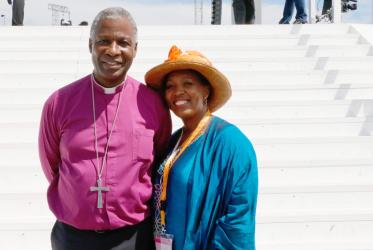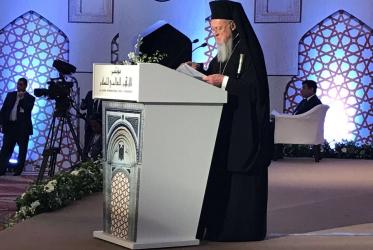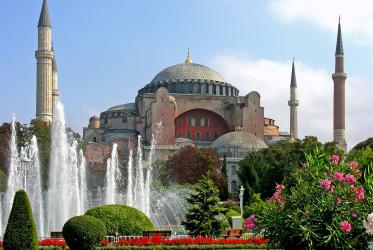Displaying 21 - 40 of 53
WCC general secretary mourns lost lives, calls for end to violence
11 December 2016
Facilitating peace with passion
26 July 2016
Tveit in South Africa: “ We know. We dare. We can.”
12 June 2016
WCC/UN conference calls for coordinated action on refugee crisis
20 January 2016









